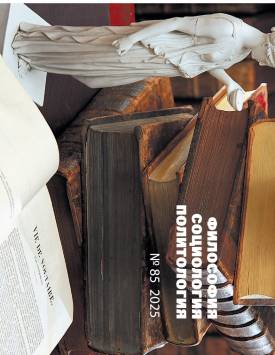Regional multilateralism in the Treaty on the Non-Proliferation of Nuclear Weapons negotiating process
Nowadays regional actors are beginning to play an increasingly important role. Various groups and coalitions are involved in the nuclear nonproliferation regime, yet today we can observe completely new forms and practices of interaction. The aim of this article is to identify the features of regional multilateralism within the framework of the work of the review conferences of the Treaty on the Non-Proliferation of Nuclear Weapons (NPT). The study analyzes the documents of the NPT conferences from 2000 to 2022 and identifies the main types of regional and interregional interaction within the NPT negotiating process. The article draws a link between studies of international regionalism and regionalization within international institutions. Theories of regionalism have accumulated a large methodological toolkit that allows investigating the nature of the formation of regions and offers a large set of concrete examples of regional practices of states. Contemporary approaches allow examining the regionalization of the NPT negotiating process through the prism of “old”, “new”, and “comparative” regionalism. The first NPT conferences (1975-1990) practised the “old” type of regionalism, which was characterized by regionalization from above. The great powers managed it. The second period of the NPT conferences since 1995 demonstrates a “new” type of regionalism, characterized by regionalization from below, openness of forms, groups and coalitions. Regional multilateralism includes activities of regional actors, which involve not only states but also NGO representatives. The third period begins in the second decade of the 21st century and demonstrates the complexity and multilayering of different types of regional groups and interregional coalitions. On the one hand, there is an increasing number of groups and coalitions with a less rigid organizational structure, network participation of states and NGOs; on the other hand, in the conditions of the crisis of the world order and international security system, old forms of regionalism in the form of blocs and coalitions governed by the great powers are revived. Regional multilateralism in the NPT negotiating process is unique. Groups of different levels emerge: regional organizations, regional groups, interregional political groups, nuclear regional organizations, nuclear regional groups, and informal interregional nuclear groups (coalitions). This is because the NPT regime itself does not have a rigid institutional or organizational form. However, the regionalization of the NPT negotiation process is becoming more complex with each cycle. The practice of creating regional and interregional groups makes the process of consensus building quite difficult. However, regionalization will continue, as this practice gives small and mediumsized states an opportunity to present their voice in the discussions. The author declares no conflicts of interests.
Keywords
regionalism, regionalization, multilateralism, NPT, nuclear groups, coalitions, regional actorsAuthors
| Name | Organization | |
| Mikhaylenko Ekaterina B. | Ural Federal University named after the First President of Russia B.N. Yeltsin | earslanova@urfu.ru |
References

Regional multilateralism in the Treaty on the Non-Proliferation of Nuclear Weapons negotiating process | Tomsk State University Journal of Philosophy, Sociology and Political Science. 2025. № 85. DOI: 10.17223/1998863X/85/18
